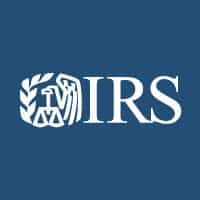 Having become so commonplace in our everyday lives, it almost goes without saying that a taxpayer needs to retain receipts for any expenditures that taxpayer wishes to claim as a deduction. Yet it is equally commonplace that one or two of those receipts will go missing, at which point the question the taxpayer faces is whether they will no longer be able to claim that expense as a deduction. Enter the “Cohan Rule,” a longstanding legal doctrine that provides an exception to the otherwise stringent Internal Revenue Service (IRS) requirement that receipts be retained as evidence of the deduction. Robert W. Wood, Forbes.com, available at www.forbes.com/2009/11/23/cohan-irs-tax-charitable-deduction-personal-finance-wood.html.
Having become so commonplace in our everyday lives, it almost goes without saying that a taxpayer needs to retain receipts for any expenditures that taxpayer wishes to claim as a deduction. Yet it is equally commonplace that one or two of those receipts will go missing, at which point the question the taxpayer faces is whether they will no longer be able to claim that expense as a deduction. Enter the “Cohan Rule,” a longstanding legal doctrine that provides an exception to the otherwise stringent Internal Revenue Service (IRS) requirement that receipts be retained as evidence of the deduction. Robert W. Wood, Forbes.com, available at www.forbes.com/2009/11/23/cohan-irs-tax-charitable-deduction-personal-finance-wood.html.
The Cohan Rule comes from a 1930 case involving the Broadway legend George M. Cohan. Cohan had amassed a great detail of show business-related entertainment and travel expenses, which he attempted to claim as deductions but which the IRS denied based on a lack of underlying documentation, i.e. no receipts. Cohan appealed the IRS’ determination to the U.S. Tax Court, which upheld the decision, and finally wound up at the U.S. Court of Appeals for the Second Circuit. It was that court that was responsible for formulating the Cohan rule, which essentially allowed taxpayers to claim deductions without receipts evidencing those deductions where “other credible evidence” could be shown that the expenses actually were incurred.
In Cohan’s case, that “other credible evidence” came in the form of testimony as to his recollections and approximations of the amounts incurred, and included everything from cab fare to restaurant bills. While the rule has traditionally been applied in the entertainment context, the Cohan Rule can theoretically be applied to any deductions, the general principle being that a lack of documentary evidence of a deduction can be supplemented with testimony. Thus, while limited by strict substantiation rules passed by Congress in 2006, the Cohan Rule remains in force.
The rule has also been applied in the charitable deduction context. In one case, a taxpayer was able to claim a deduction for a $6,000 charitable gift for which there was no receipt based on correspondence from the recipient that included the gift amount and a statement of what, if anything, the recipient had given in return for the contribution, and its value. That said, while the Cohan Rule remains in force, and under it correspondence from a charitable gift recipient can be used to substantiate the deduction, it is far better to rely on documentation of the deduction. In other words, it is always a good idea to keep your receipts.
______________________________________________________________________
Please keep in mind the information and advice presented in this blog is not intended to be used as formal legal advice. Contact a tax professional for personalized tax advice pertaining to your specific situation. While we try and answer all parts of the question when we write our blogs, sometimes there may be some left unanswered. If you have any questions about your problems with the IRS, SBOE, FTB, or BOE, or tax law in general, call RJS Law at (619) 595-1655.

Leave a Reply